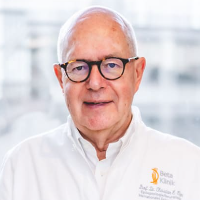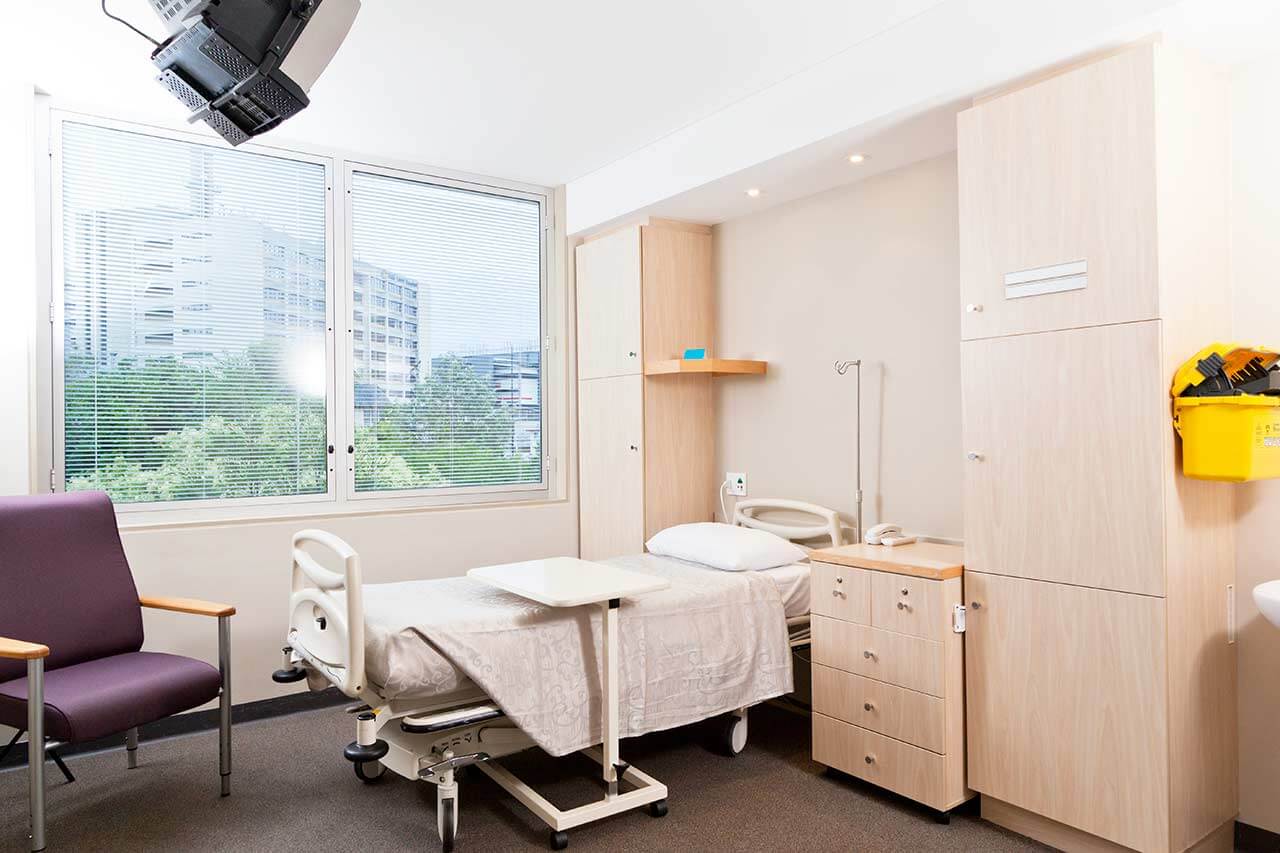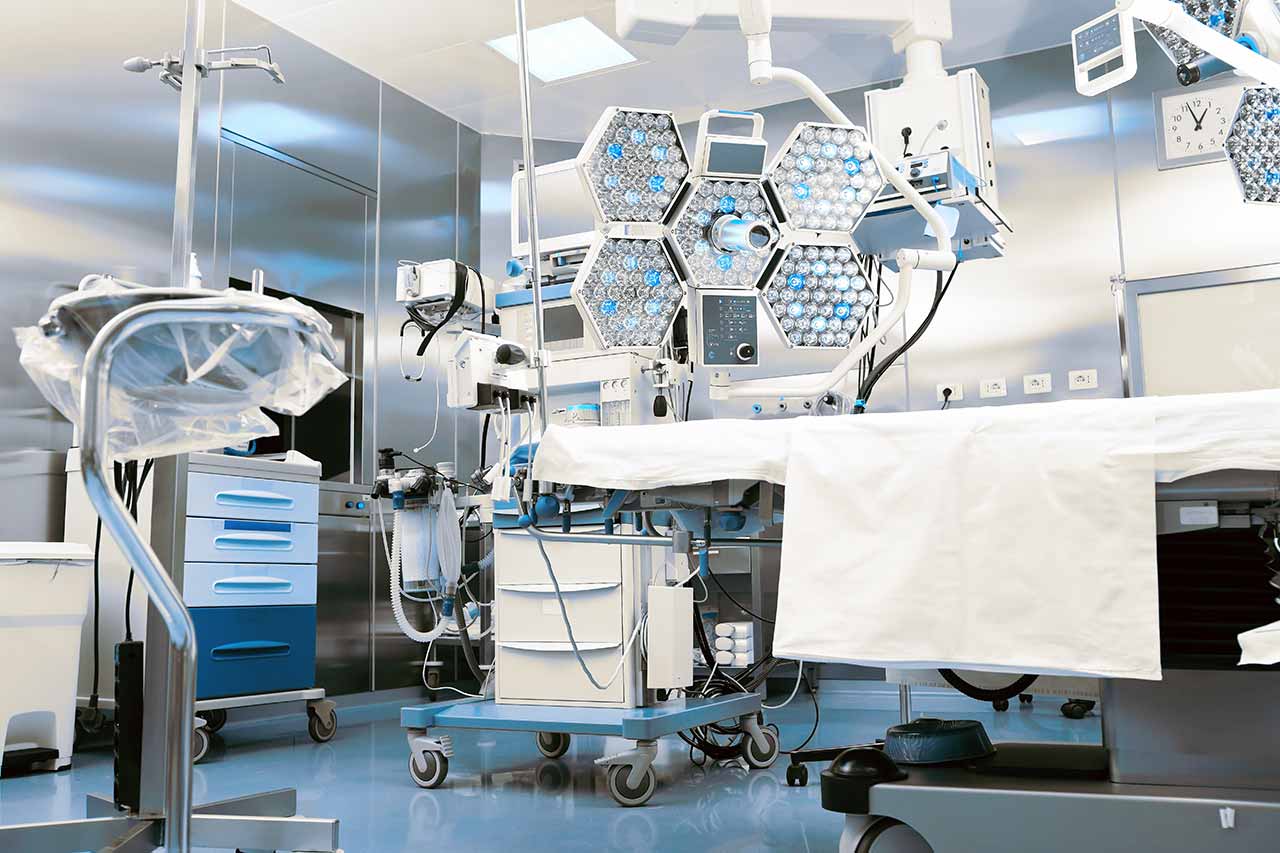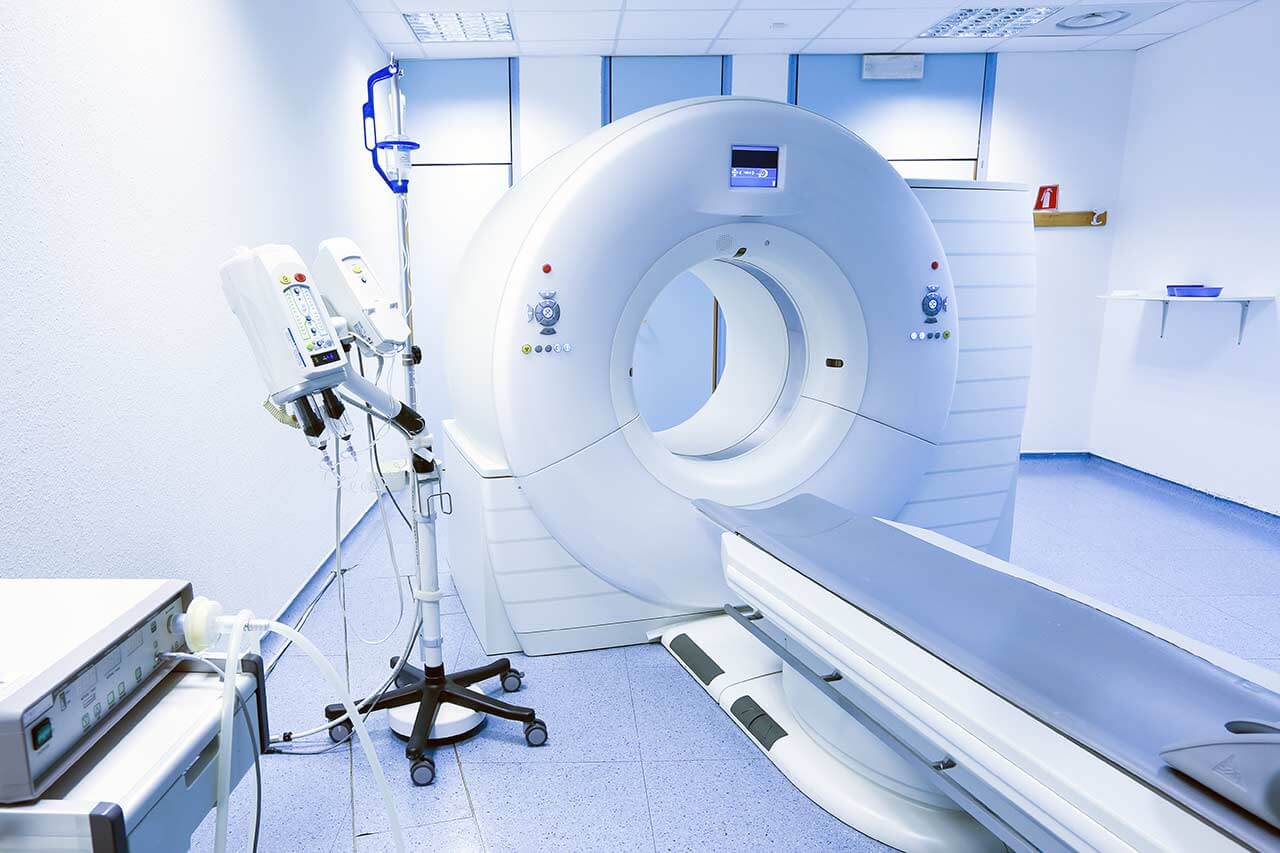
The program includes:
- Initial presentation in the clinic
- clinical history taking
- review of medical records
- physical examination
- laboratory tests:
- complete blood count
- general urine analysis
- biochemical analysis of blood
- determination of the concentration
of antiepileptic drugs in the blood - inflammation indicators (CRP, ESR)
- indicators blood coagulation
- neurological examination
- CT/MRI scan
- neuropsychological tests (on indications):
- ENMG (electroneuromyography)
- EEG (electroencephalography)
- SEPs (somatosensory evoked potentials)
- VEPs (visually evoked potentials)
- BAEP tests (brainstem auditory evoked potential)
- nursing services
- consultation of related specialists
- treatment by chief physician and all leading experts
- explanation of individual treatment plan
Required documents
- Medical records
- EEG (if available)
- MRI/CT scan (if available)
Service
You may also book:
 BookingHealth Price from:
BookingHealth Price from:
About the department
The Department of Adult and Pediatric Neurology, Epileptology at the Beta Clinic Bonn offers the full range of services for the diagnostics and treatment of diseases of the nervous system. The department's team of doctors has rich experience and exceptional professional skills in the treatment of epilepsy, strokes, Parkinson's disease, chronic headaches, trigeminal neuralgia, dystonia, polyneuropathies, and other neurological disorders. The department has state-of-the-art equipment, including 3 Tesla MRI devices, electroencephalography, electromyography, color duplex sonography of the cerebral vessels, nerve conduction velocity measurements, etc. In most cases, the treatment is based on the use of individually developed drug therapy regimens with highly effective drugs of the latest generation. The department's neurologists cooperate closely with neuroradiologists and neurosurgeons, so a patient can receive invasive treatment if necessary. In their work, the department's doctors strictly follow the current clinical protocols and also strive to meet the individual needs and wishes of each patient.
The Head Physician of the department is Prof. Dr. med. Christian Erich Elger. The doctor is an internationally recognized epileptologist. He has 40 years of clinical experience in neurology. Prior to founding the Department of Adult and Pediatric Neurology, Epileptology at the Beta Clinic Bonn, Prof. Elger headed the Department of Epileptology at the University Hospital Bonn for more than 25 years. He also has about 1,000 scientific publications. According to the patients' ratings on the Jameda website, the doctor is one of the top five epileptologists in Bonn.
Patients of all ages with epilepsy are the focus of the attention of the department's team of doctors. The department offers a comprehensive approach to the diagnostics and treatment of the disease. Upon admission to the department, a patient undergoes a general clinical examination. To make an accurate diagnosis, it is also important for a neurologist to get a detailed description of the typical epileptic seizures that the patient had previously. Video EEG monitoring, CT or MRI scans, blood tests, and genetic tests are then carried out. In some cases, a PET scan is also required. Following full diagnostics, the attending physician studies the results and proceeds to develop a treatment regimen. Most cases of epilepsy respond well to drug therapy. Patients most often need to take one anticonvulsant drug, but strict adherence to the dosage and regimen of the medication plays an important role. If drug therapy does not give the desired result, the neurologist may consider vagus nerve stimulation. The essence of the procedure is to implant a miniature generator under the skin, which helps to reduce the electrical activity of the brain and thus eliminate epileptic seizures. The last-line treatment is a surgical intervention, which also gives good results but is associated with the risk of damage to the important anatomical structures of the brain. In addition, since 2019, the department has been performing innovative laser treatments for epilepsy. The laser procedure is less traumatic but, at the same time, it has a high efficiency. This type of treatment is currently available only here and in another medical facility in Germany.
The department's doctors also admit patients with Parkinson's disease. The condition is characterized by the gradual destruction of the brain neurons responsible for coordinating movements. The symptoms of the pathology include trembling, muscle stiffness, slowness of movement, and problems with balance. The department uses various methods for diagnosing Parkinson's disease, including neurological tests for motor coordination, a response to various stimuli, and tests for memory and cognitive functions. Of particular value during the diagnostics is a brain MRI scan. A number of laboratory blood and urine tests are also carried out. The first-line treatment is drug therapy aimed at relieving symptoms and preventing the progression of the pathology. The intake of drugs is often supplemented by physiotherapy, occupational therapy, and speech therapy. In the complex course of the disease, patients are offered deep brain stimulation. During this minimally invasive intervention, special electrodes are implanted into pathological brain areas, which act on neural circuits. This results in relief of the symptoms of Parkinson's disease and the achievement of a high quality of life. The treatment regimen is developed for each patient individually, which allows the patient to achieve the best results.
The treatment of trigeminal neuralgia is also a priority for the team of the department's neurologists. The main manifestation of the disease is pain in the front of the head, especially in the cheeks and lower jaw. At the diagnostic stage, the doctor may assume the presence of the disease based on the patient's complaints and the results of the clinical examination. Further, as a rule, laboratory tests, CT or MRI scans, and electroneuromyography are performed. When the diagnosis is confirmed, in most cases, drug therapy is carried out in combination with physiotherapy. Acupuncture also has a good effect. In complex cases, a surgical intervention may be required, namely microvascular decompression (the Jannetta procedure).
The department's main clinical activities include:
- Diagnostics and treatment of epilepsy in adults and children
- Diagnostics and treatment of Parkinson's disease
- Diagnostics and treatment of trigeminal neuralgia
- Diagnostics and treatment of strokes
- Diagnostics and treatment of chronic headaches
- Diagnostics and treatment of dizziness
- Diagnostics and treatment of dementia
- Diagnostics and treatment of dystonia
- Diagnostics and treatment of polyneuropathies
- Diagnostics and treatment of carpal tunnel syndrome
- Diagnostics and treatment of amyotrophic lateral sclerosis
- Diagnostics and treatment of other neurological disorders
The department's range of medical services includes:
- Diagnostics
- Laboratory tests
- Computed tomography (CT) of the brain
- Magnetic resonance imaging (MRI) of the brain
- Electroencephalography (EEG), including video EEG monitoring and long-term EEG monitoring
- Electromyography (EMG)
- Electroneuromyography (ENMG)
- Registration of evoked potentials
- Color duplex sonography of the cerebral vessels
- Neuropsychological tests
- Treatment
- Drug therapy with pills
- Infusion and injection therapy
- Physiotherapy
- Vagus nerve stimulation for epilepsy
- Laser treatment for epilepsy (innovative procedure)
- Deep brain stimulation for Parkinson's disease
- Other diagnostic and treatment methods
Curriculum vitae
Higher Education, Postgraduate Training and Professional Experience
- 1969 - 1976 Study of Human Medicine, Doctoral Degree, and Medical License.
- 1982 Habilitation in Physiology.
- 1982 - 1985 Training in Neurology at the Universities of Muenster, Memphis, and Zurich.
- 1985 Board certification in Neurology.
- 1985 - 1987 Senior Physician in the Department of Neurology at the University Hospital Muenster.
- 1986 Habilitation in Neurology.
- 1986 - 1987 Board Member of the Westphalia-Lippe Medical Association.
- 1987 - 2018 Professor for Epileptology at the University of Bonn.
- 1990 - 2018 Head of the Department of Epileptology at the University Hospital Bonn.
- 1991 - 1994 Member of the Advisory Board of the Ministry of Health.
- 1997 - 1999 First Chairman of the German Section of the International League Against Epilepsy.
- 2000 - 2001 President of the German Society for Clinical Neurophysiology.
- 2000 Member of the North Rhine-Westphalian Academy of Sciences.
- 2001 Associate Editor, "Epilepsy and Behavior".
- 2001 - 2007 Spokesman for the transregional special research area (TR3) "Mesial Temporal Lobe Epilepsy".
- 2003 Co-Founder and Partner of "Life & Brain" GmbH, Bonn.
- 2004 - 2008 Associate Editor, "Brain".
- 2004 - 2008 Member of the Supervisory Board for Neurosciences of the German Research Foundation.
- 2006 - 2015 Scientific General Director of "Life & Brain" GmbH, Bonn.
- 2009 Co-Founder and Director at the Center for Economics and Neuroscience, University of Bonn.
- 2017 Foundation of the Department of Adult and Pediatric Neurology, Epileptology at the Beta Clinic Bonn.
Awards and Prizes (selected)
- 1992 Marion Merrell Dow Promotional Prize for Epilepsy Research.
- 1992 Honorary Member of the Swiss League Against Epilepsy.
- 2005 Ambassador in the International League Against Epilepsy (ILAE).
- 2005 Zuelch Prize from the Gertrud Reemtsma Foundation in the Max Planck Society.
- 2010 Hans Berger Prize from the German Society for Clinical Neurophysiology (DGKN) for merits in Epileptology.
- 2011 Victor and Clara Soriano Award from the World Federation of Neurology.
- 2012 European Epileptology Award from the International League Against Epilepsy (ILAE).
- 2015 William G. Lennox Award from the American Epilepsy Society (AES).
- 2017 Moritz Romberg Award from the European Academy of Neurology (EAN).
Photo of the doctor: (c) Beta Klinik Service-, Verwaltungs- und Forschungs- GmbH
About hospital
The Beta Clinic Bonn is a modern private healthcare facility with 20 specialized departments. In addition, the clinic cooperates with 30 independent doctors of various specializations, most of whom have their own private practices. The doors of the clinic first opened for patients in 2008. Since that time, the medical facility has expanded significantly and achieved outstanding success. It harmoniously combines state-of-the-art equipment, high levels of competence among doctors, and comfortable infrastructure. All these possibilities make it possible to provide patients with high-quality medical care in accordance with modern European standards. The work of the medical team at the clinic is based on the following principle: "Our task is to take care of the health of patients." The clinic provides comprehensive treatment, taking into account the individual needs and wishes of each patient.
The hospital has an excellent diagnostic base: rooms for instrumental diagnostics, imaging tests, and endoscopic procedures. The medical complex also has in-house laboratories with advanced equipment. The clinic's doctors have the opportunity to perform comprehensive diagnostics in the shortest possible time and detect the slightest pathological changes in the work and structure of the internal organs. When considering the diagnostic results in complex clinical cases, physicians from related specialties are often involved in the process so that all important aspects are taken into account when developing a treatment regimen for a patient.
The therapeutic options at the clinic are quite diverse. At the same time, doctors always strive to keep pace with innovations, carrying out treatment using the most modern and sparing techniques. The operating rooms at the clinic have advanced computer equipment, navigation devices, monitoring systems, surgical microscopes, special tools, and equipment for laparoscopic and endoscopic interventions, as well as laser systems. The clinic also has an in-house Rehabilitation Center, where patients undergo physiotherapy and therapeutic exercises.
The clinic is expanding more and more every year. Innovative developments in diagnostics and treatment are immediately introduced here. It is worth noting that the clinic is a pioneer in Germany in advanced laser treatment for epilepsy. The therapy was implemented into clinical practice in 2019 and has been successfully applied here since then.
Photo: (с) depositphotos
Accommodation in hospital
Patients rooms
The patients of the Beta Clinic Bonn live in comfortable single rooms. Each room has a separate bathroom with a shower and toilet. The rooms have a modern design and meet the standards of a high-class hotel. For the convenience of patients, the rooms are equipped with electrically adjustable beds, air conditioning, satellite and Internet TV, a telephone, and Wi-Fi.
The clinic also offers accommodations in enhanced comfort rooms. Such patient rooms have a more refined design. In addition, they are very spacious. Enhanced comfort rooms have a minibar, daily fresh fruit, and a special dinner menu. Most windows of the clinic's patient rooms offer a beautiful view of the Rhine River and beautiful green landscapes.
Meals and Menus
The patients of the clinic are offered balanced, delicious food: a buffet breakfast, a hearty three-course lunch, and a light dinner. Also, for dinner, one can taste special offers from the chef at the hospital restaurant, which, if desired, can be served to the patient room.
Further details
Standard rooms include:
Accompanying person
Your accompanying person may stay with you in your patient room or at the hotel of your choice during the inpatient program.
Hotel
You may stay at the hotel of your choice during the outpatient program. Our managers will support you for selecting the best option.
In the immediate vicinity of the clinic is the Kameha Grand, a five-star hotel. The exterior and interior of the hotel impress with their beauty. In addition, the hotel is famous for its excellent service. The hotel is located on the banks of the Rhine and offers picturesque views from its windows.





